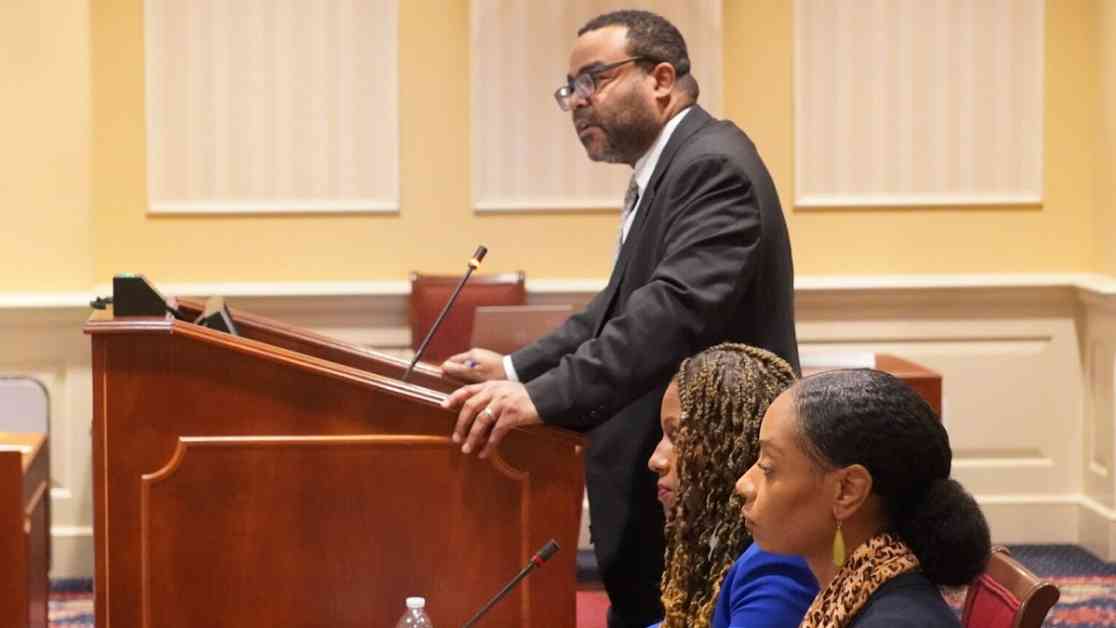Debate over Traffic Stop Measure in Senate Panel – A Closer Look at the Ongoing Controversy
In a recent Senate Judicial Proceedings Committee hearing, Sen. Charles Sydnor III (D-Baltimore County) passionately advocated for a bill that could potentially revolutionize the way traffic stops are conducted in Maryland. The bill in question aims to reclassify certain traffic violations as secondary offenses, a move that supporters argue would not only address racial disparities in traffic stops but also enhance the safety of both motorists and police officers.
During the hearing, Sen. Sydnor emphasized the need to adapt law enforcement practices to the technological advancements of the 21st century. By reclassifying primary traffic violations as secondary offenses, the bill aims to allow police officers to focus on more pressing matters rather than getting entangled in minor infractions. The proposed legislation, if passed, would not eliminate existing laws but rather restructure the enforcement hierarchy, making non-safety-related offenses secondary violations.
However, not everyone is on board with the proposed changes. Law enforcement officials and police officers voiced concerns during the hearing, arguing that the bill could complicate their jobs and jeopardize public safety. Lt. Erin Brandt from the Anne Arundel County Police Department highlighted the ambiguous language in the bill that could potentially lead to confusion among officers. Brandt cautioned that requiring officers to document every reason for a traffic stop might shift the focus away from constructive conversations on traffic safety laws.
The bill, which was deliberated for over two hours, seeks to reclassify several primary offenses as secondary violations, including driving without essential lights, obstructed mirrors, excessive noise, window tint, and failure to illuminate a license plate. Under the proposed legislation, drivers could still be cited for these violations, but only after being pulled over for a primary offense.
One of the driving forces behind the bill is the current racial disparity in traffic stops. Public Defender Natasha Dartigue pointed out the disproportionate impact of traffic stops on Black drivers, citing instances of racial profiling and discriminatory practices. Dartigue referred to these situations as “Driving while Black,” underscoring the urgent need to address systemic inequalities in traffic enforcement.
Despite the bill’s noble intentions, some stakeholders remain skeptical. Baltimore County State’s Attorney Scott Shellenberger expressed concerns about the potential risks associated with reclassifying certain traffic violations. Shellenberger emphasized the public safety implications of overlooking issues such as malfunctioning headlights, illustrating how seemingly minor infractions could have significant consequences on road safety.
Attorney General Anthony Brown, while expressing support for the bill in principle, recommended several amendments to address safety-related concerns. Brown suggested allowing officers to conduct a traffic stop if they observed two or more secondary violations and proposed a streamlined procedure for issuing citations or repair orders for such offenses. Brown’s recommendations aimed to strike a balance between reducing racial disparities in traffic stops and maintaining public safety standards.
As the debate continues to unfold, the House version of the bill, sponsored by Del. N. Scott Phillips (D-Baltimore County), is set for a hearing in the House Judiciary Committee. The outcome of these legislative discussions will undoubtedly shape the future of traffic enforcement practices in Maryland, highlighting the complex interplay between law enforcement, public safety, and social justice.


















